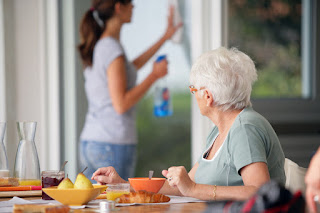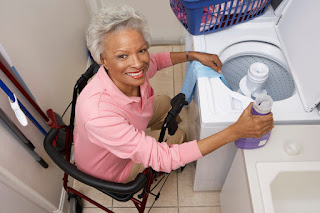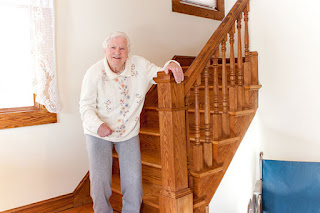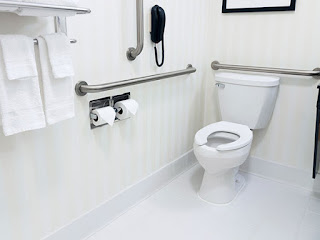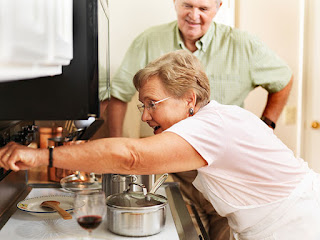Generally, when financial experts and money management advisors speak of financial planning and money management, their statements are generally directed at people in their 20s and 30s. The general mindset is that younger people lack an astute level of financial literacy, and there is a general misconception that the elderly are more financially literate. However, we are learning that we need to refocus some of our efforts to build financial literacy toward the part of our population over the age of 50.
While the efforts to increase financial literacy among youth are on the rise, some experts believe that we are not focusing enough improving the financial literacy level of our seniors, especially those who have low to moderate income levels. Fortunately, there are some steps that people over the age of 50, or the loved ones responsible for caring for them, can do.
1. Develop a Line of Communication
Attempting to take on the responsibility of caring for an elderly parent can be a challenge, for a number of different reasons. In addition to any financial challenges, there is also the emotional and psychological issue associated with your parent losing their sense of independence and autonomy. So, the first step that should be taken in the process of assuming the financial responsibility for your parents is to have a respectful, face-to-face talk with them to discuss what will be taking place. It is important that they understand that you are not attempting to control them or take over their finances, just attempting to be of help.In the case of siblings, it's probably a good idea to get them involved as well. Involving your siblings may help to reduce the possibility of the development of animosity, and it could ensure your parent that the family has their best interest in mind.
2. Get Things Organized
Once you and your parents reach an agreement to allow you to help them manage their finances, your first responsibility will be to get the finances organized so that you will become aware of their debt, utilities and due dates. Make a list of all of the financial accounts, so that you will be able to have a complete understanding of the cash flow and cash demand. You should also gather all legal documents that are associated with their finances, such as a will, insurance policies, etc.It may also be a good idea to enroll them in the AARP/Schwab Program, which are workshops developed through a partnership between the AARP and Charles Schwab aimed at helping people over 50 improve their financial literacy. This program has an extremely high success rate.
You should also develop a plan to lower any debt that your parents currently have. If possible, eliminate all but one credit card, and that card will be used for purchase convenience and paid off completely at the end or the beginning of the month.
3. Set Up Automatic Bill Payment with Your Parent's Financial Institution
Whenever possible, it is a good idea to set up automatic bill pay, which will be helpful to ensure that all of the essentials, such as utilities, rent and insurance payments are taken care of. If your parent is on a fixed income, you will be able to look at the list of their finances that you created to determine which payments must be at the top of the priority list. Those bills that can be placed on automatic bill pay, should be. This will ensure that when you are away, nothing important will be missed. In order to simplify the automatic bill paying process, you could opt to use a third-party bill paying service such as Quicken Bill Pay. There also companies that specialize in paying bills for the elderly; however, some of these companies can have services that are exorbitantly priced, so be careful.4. Mitigate the Potential for Scams
As people age, they become more at risk to be a target of criminals who prey on the week, like con and scam artist, as well as criminals that specialize in identity theft. While your parent's sensitive information, such as birthdate and social security number will not be on their mail, criminals have become very astute and using pieces of information to build a large enough portrait of who your parents are in order to take advantage of them. While women are generally targeted more than men, men are normally taken for more. One way that the risk of potential trouble can be mitigated is to have all mail routed to a safe place like a post office box.5. Add a Safeguard
Depending on the mental condition of your parents, you may need to add a safeguard to minimize the chance of her being taken advantage of. Elderly people are usually more generous, and people take advantage of that. If your parents want to have a pet charity that they donate to on a regular basis, it is okay; this type of giving activity continues to give their life purpose; however, you should convince them to let you set up an automatic payment or draft to make the donation. Second, it may be necessary to visit their financial institution and have it set up where every check will have to have two signatures, and you will have to determine who the authorized signers will be. Requiring two signatures means that no door-to-door, telemarketing or mail scammers will be able to convince your loved one to write a check for a charity that does not exist.At this point in the game, this might also be a good time to convince your parents to visit an attorney to set up a power of attorney, which will make it much easier to manage their financial affairs. The power of attorney can be drawn up to give you as much latitude with your parent's finances as they are comfortable with.
6. Keep Your Parents Actively Involved in the Budgeting Process
Although it may be more expeditious for you to do everything on your own, including your parents in the process will help to keep their morale up. Having the ability to be involved in the decision making assures them they still have a level of independence and purpose.Finally, there may be a need to bring in a financial advisor, depending on the age of your parent. The younger they are when you take over, the more money they will need in order to live. If there is any discretionary income, it may be a good idea to invest in a low-risk product that will have a solid yield in 10 to 15 years — a time in which your parents may need more money for uncovered medical expenses and other needs.

